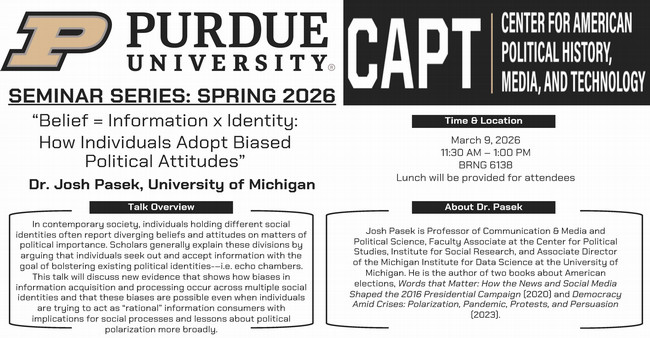
History Department Events
The Department of History hosts a number of speakers, receptions, and student presentations throughout the year. Please check this page frequently, as new events will be added periodically.
This page highlights our upcoming events in the Department of History. To see our past events, please visit this page.
Upcoming Events
CAPT Seminar Series
CENTER FOR AMERICAN POLITICAL HISTORY, MEDIA, AND TECHNOLOGY
March 9, 2026
11:30-12:30
BRNG 6138

Dr. Pasek is professor of communication and political science at University of Michigan and Associate Director of the Michigan Institute for Data Science. He is also the author of two books about American elections, Words that Matter and Democracy Amid Crises. He will be sharing his new research project, “Belief = Information x identity: How individuals adopt biased political attitudes.”
April 28, 2026
7:00 PM
SC 239
Please join for a book reading and signing with Dr. Subohana Wijeyeratne.
